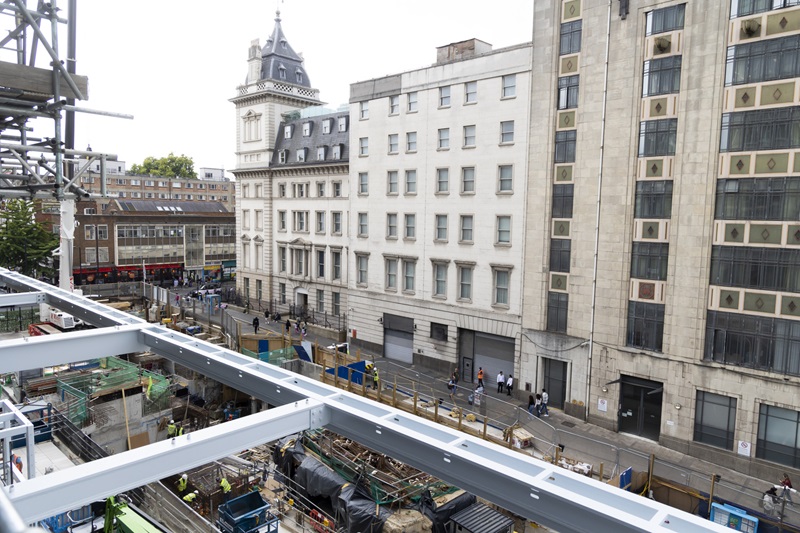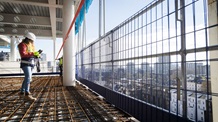Why the industry needs a joined-up approach to reach carbon neutrality
The requirement to achieve carbon neutrality is now widely agreed upon throughout the construction industry – but can any of us really do that alone? Clare Jones, Group Procurement Director at Mace, writes that effective partnerships between contractors, supply chains and clients are essential to creating a built environment with sustainability at its core.
The urgency of tackling climate change means constructors can no longer look to the future in isolation. We have a collective responsibility, so working together across the supply chain is more crucial than ever.
Companies with the appropriate resources and experience need to take the lead – we must do more to help those less able to work towards net zero alone. A significant proportion of our sub-contractors have already developed a net zero strategy, but we’re conscious that, without the knowledge of others’ experiences in the field, some may be at a disadvantage. Equally, without a forum to share ideas and practices, expertise from all parts of the supply chain may go to waste.
Sharing knowledge benefits all
It’s clear that education and communication are invaluable when it comes to grasping what can be a complex subject. Sharing knowledge and providing access to specialist training is the purpose of our own Mace Business School’s courses. As we have challenged our Tier 1 supply chain to achieve net zero carbon by 2026, it’s only fair that we offer them help to do so.
Mace Business School has been running regular sustainability training sessions to help our suppliers get to grips with the subject and produced an openly available guide to creating a net zero carbon strategy. In recent years, many other sources of training have been developed, including courses provided by industry bodies and universities, which can only be positive for construction.
The need to reduce carbon is too important for the ability to be treated as a competitive advantage. The more we, as an industry, are willing to share our experiences for the greater good – rather than keep them to ourselves for our own benefit – the better.
Innovate together
So, what exactly do we need to be sharing? Construction is an adaptable and creative industry, and the learnings which come from trying and testing new techniques can be highly valuable.
At our HS2 Euston construction site, for example, we worked with Keltbray to pilot an innovative piling technique. The ‘HIPER’ pile reduced embodied carbon by over 80% and material use by over 50% compared with conventional piling solutions. An additional benefit was that we could use the void spaces in the pile for rainwater harvesting or as inter-seasonal thermal storage. Trialling techniques like these has given us the knowledge and confidence to share them as viable low-carbon solutions.
As an integral part of all our construction projects, our supply chain partners get to share in these successes too. By learning the lessons of measuring the whole-life carbon impact of a construction solution, they can take this knowledge forward to other projects.
Think strategically
Such innovation can no longer be a nice-to-have; it’s vital if the construction industry is to get to where it needs to be. Mace has already achieved carbon neutral status and continues to work towards removing the need for carbon offsetting. Underlining this commitment, we have placed carbon reduction at the heart of our ‘Innovation 2.0’ strategy, a major investment programme launched earlier this year.
Alongside innovation in ‘digital and data’ and ‘construction to production’ (the use of components manufactured offsite), these three areas of investment are intended to lead construction to a future where construction sites and the wider industry are connected, enabling the delivery of low carbon in a more productive, safer environment. Ultimately, it’s collaboration and a clear vision that will lead us, as an industry, to that goal.












